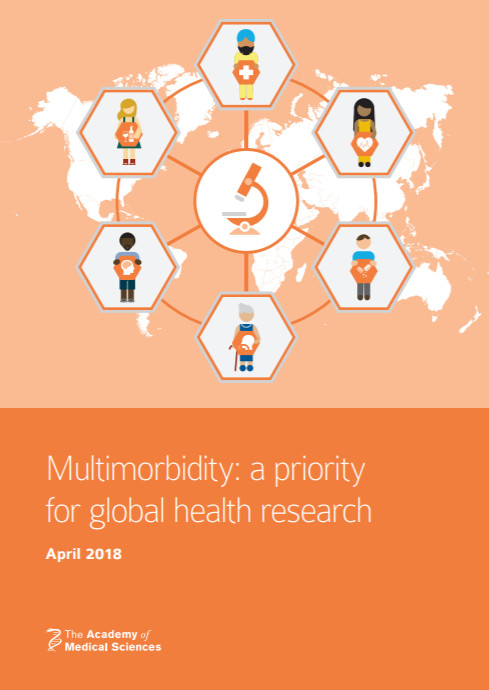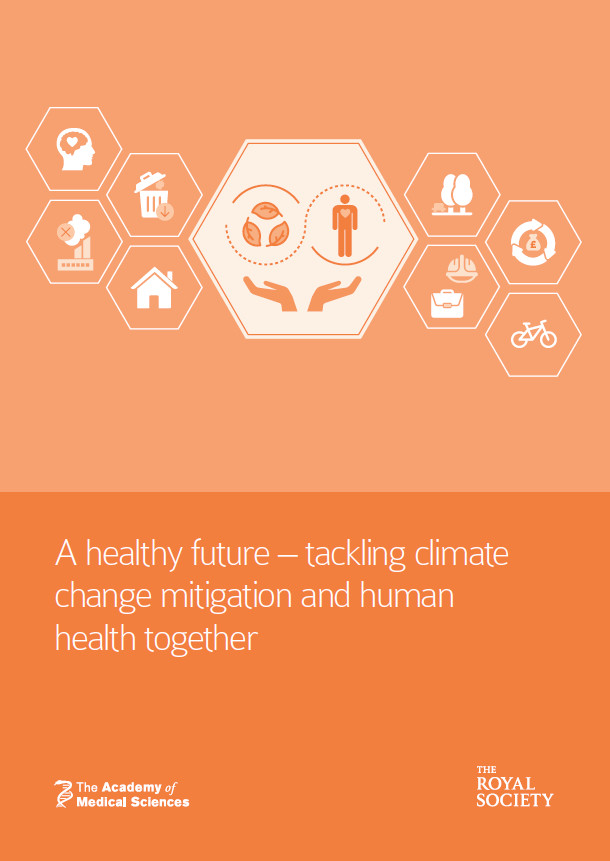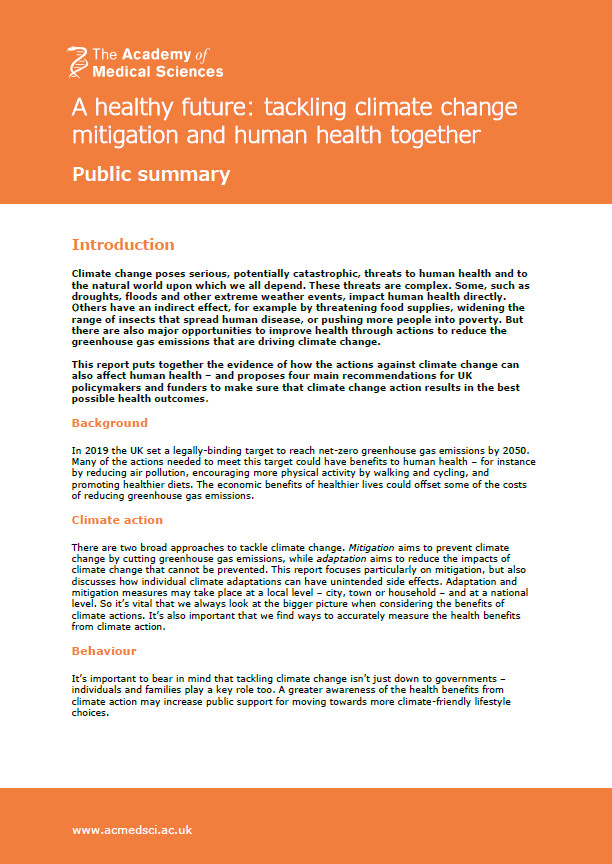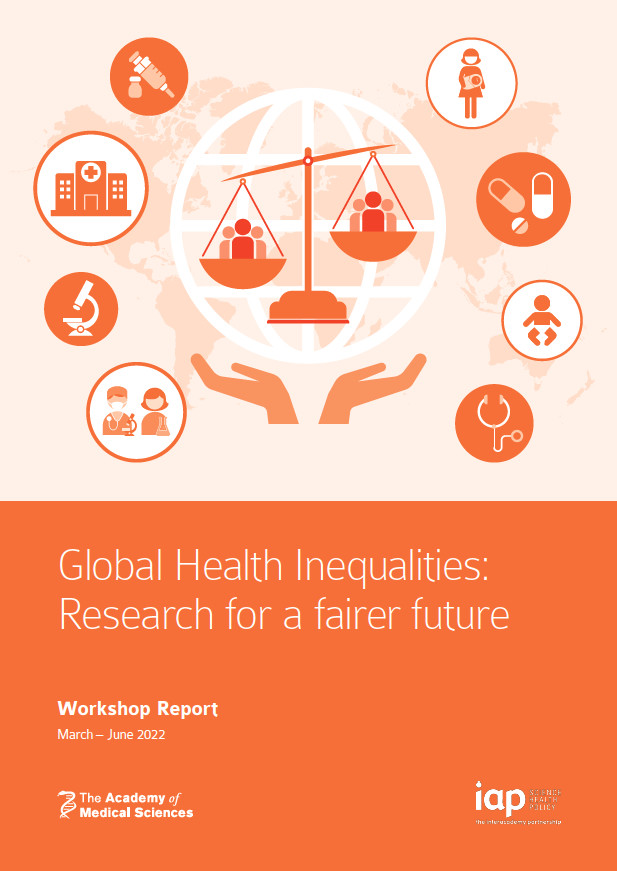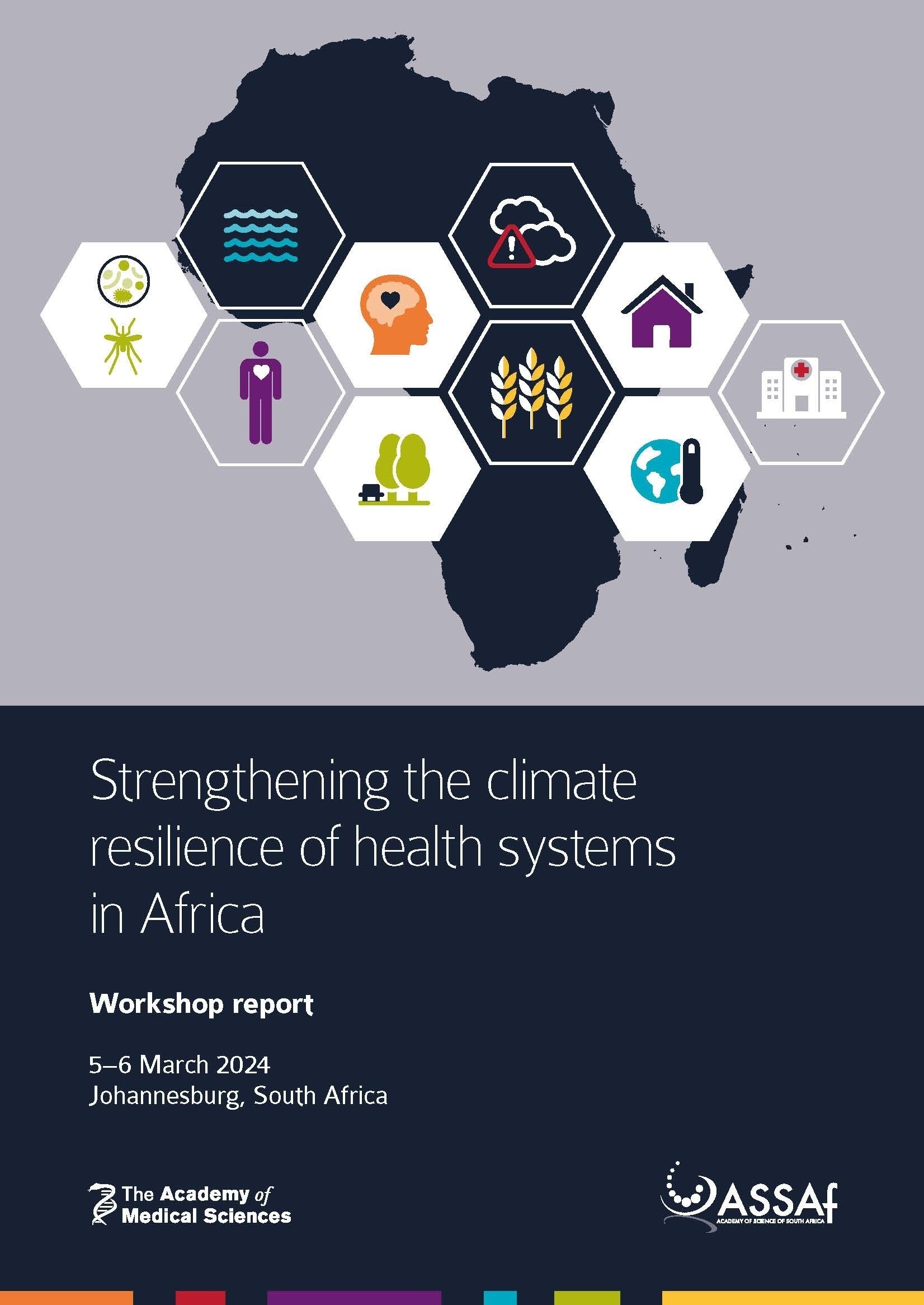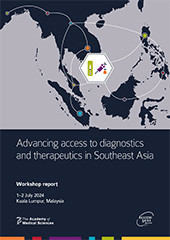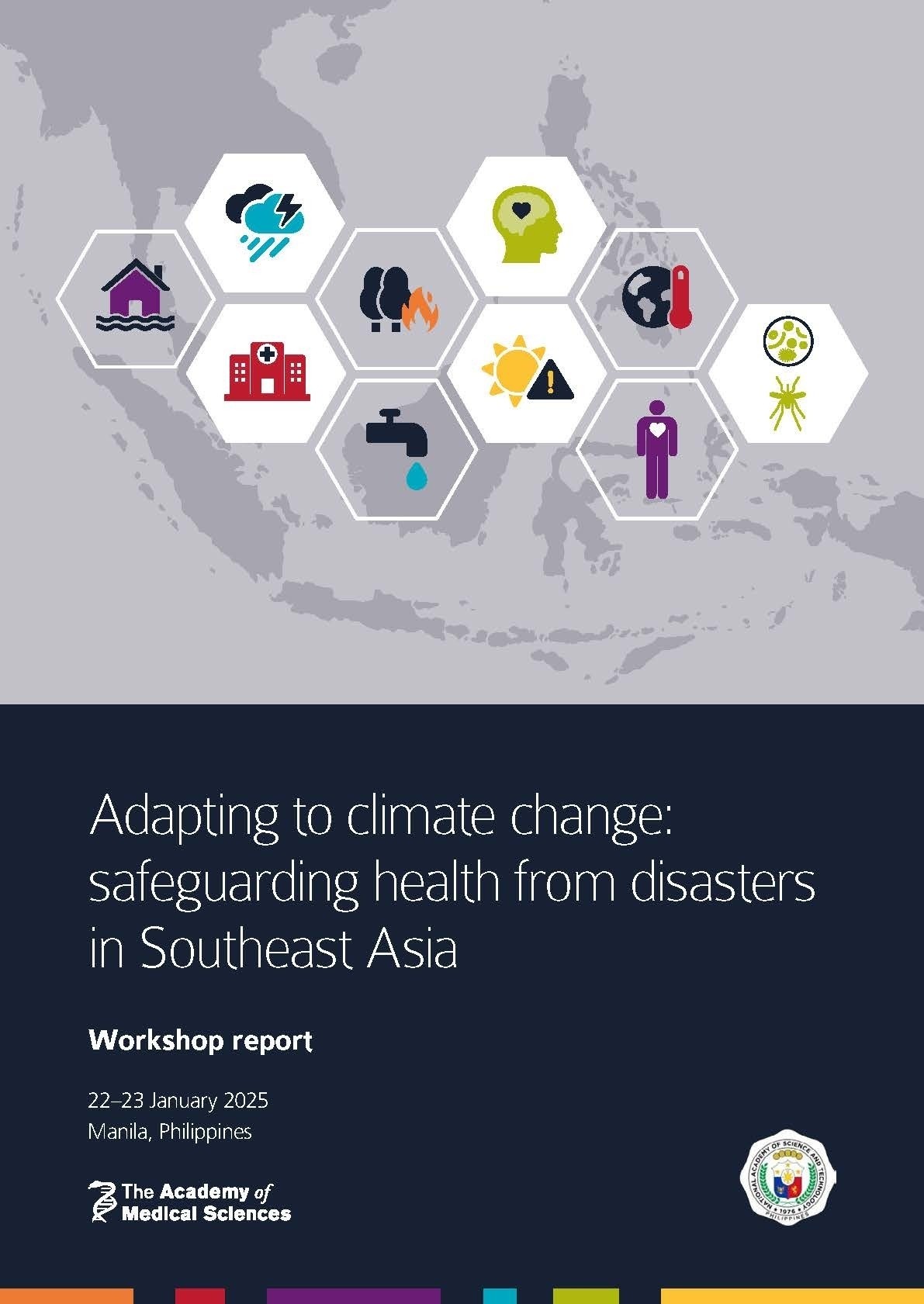The Academy represents UK Medical Science across a number of international science networks and forums. We actively engage in these networks in order to provide a strong contribution to global challenges, international scientific knowledge exchange and science policy advice.
Inter national Science Council (ISC)
national Science Council (ISC)
The Academy has joined the membership of the International Science Council (ISC), enabling us to build on our strengths as a trusted voice for global health and science issues.
The ISC brings together more than 230 members, including international scientific unions and associations from natural and social sciences, the humanities, and national and regional scientific organisations such as academies and research councils.
Together with their members and partners, the ISC works at a global level to catalyse and convene scientific expertise, and to advise and influence on issues of major concern to science and society. It is the only international non-governmental organisation (NGO) that brings together organisations from both the natural and social sciences, integrating scientific excellence and science policy expertise across these disciplines.
As a member of the ISC, we will be providing biomedical and health expertise to contribute further to its impactful work. This includes sharing the collective knowledge and expertise of our Fellows and emerging research leaders to help shape ISC programmes, governance, and strategic direction.
Working in partnership with other members of the ISC, the Academy hopes to understand and address global health research and development challenges by identifying new approaches to be agile, inclusive and innovative in our international work.
InterAcademy Partnership (IAP)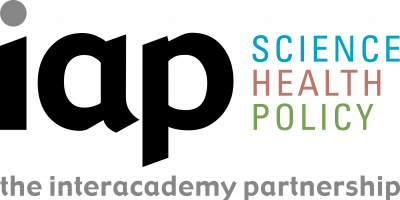
The Academy is a member of the InterAcademy Partnership (IAP) – a network of 150 national, regional, and global member academies that work together to support the vital role of science in seeking evidence-based solutions to the world’s most challenging problems. IAP's programs and projects align with its three primary strategic goals of capacity building for academies, providing high quality scientific advice, and promoting science education and outreach.
IAP’s member academies constitute more than 30,000 leading scientists, engineers, and health professionals in over 100 countries. IAP also helps build the capacity of its new and less-experienced member academies, and strengthen their abilities to take on an advisory role in-country and to contribute to global discussions.
We have worked closely with the IAP on many occasions, including jointly coordinating policy workshops on the topic of global health inequalities, Universal Health Coverage and global mental health.

Federation for European Academies of Medicine (FEAM)
We work closely with the Federation for European Academies of Medicine, a collective of medical academies which aims to promote cooperation between national medical, pharmacy and veterinary Academies in the WHO European region on European matters related to biomedical science and health policy.
Our membership of FEAM supports our efforts to continue forging close links with our colleagues in other National Academies across Europe, contributing meaningfully to science policy and health challenges and formulating common positions.
Visit our European policy pages for further information on our work in this area.
UK Human Rights Committee
Working alongside our National Academy counterparts, we have formed the UK Academies Human Rights Committee (UKHRC). The UKHRC is a Human Rights Network which assists scientists and scholars around the world who are subjected to severe repression solely for having non-violently exercised their rights, as given by the Universal Declaration of Human Rights.
The UKHRC will act only when an individual’s human rights have been violated due to reasons directly related to their research or academic/scientific work. The group is part of the International Human Rights Network and we have responded to a number of cases globally via this forum.
The Academy's working group projects convene experts to formulate a general consensus and generate policy and research recommedations backed by scientific evidence. To do this, we allow time for extensive consultation and deliberation throughout the lifespan of these projects.
To date, the international policy team have undertaken two working group study's on the topics of multimorbidity and climate change and health. See an overview of these projects below.
Climate change and health
Measures to tackle climate change could significantly benefit human health in the immediate term, as well as in the longer term. The Academy recently partnered with the Royal Society to publish a working group report exploring the health co-benefits of climate change mitigation policies in the UK. The report, released in October 2021 and aimed at policymakers, calls on the UK government to make sure that the initiatives they establish to tackle climate change are also designed to deliver benefits to health.

Visit our climate change and health webpage for information on the project and to access the final report.
Multiple Long Term Conditions / Multimorbidity
We produced the world’s first comprehensive review on the increasing global problem of multimorbidity, where people are suffering from more than one serious health condition. We highlighted the inadequacy of existing evidence to guide health policy and medical practice, and suggested a series of urgent research priorities. We are now leading as a hub organisation for multimorbidity and our work has already led to a joint funding call in the UK context.

“The Academy’s report on multimorbidity has galvanised policy-makers, funders and researchers to ask, “What can be done to better serve these patients and their families?” Professor Chris Whitty CB FMedSci, Chief Medical Officer
The Academy works with a range of international partners to host policy workshops which bring together experts to help address global health issues, build networks and strengthen the global commitment to biomedical and health research.
High-income country workshops
Building from the successes from our policy workshops with partners from low- and middle-income countries, the Academy is expanding our scope to include partnerships with high-income countries over 2023 - 2025.
These workshops will focus on a variety of global health topics:
ODA workshops
The Academy received official development assistance (ODA) funding from the Department for Bussiness, Energy and Industrial Strategy (BEIS) to organise three global health workshops exploring topics of relevance in select low-and Middle-income Countries:
- The first joint workshop took place over 21-22 November 2023. The joint workshop organised in partnership with the Academy of Science of South Africa (ASSAf) was focused on mental health in Africa.
- The second joint workshop took place over 6-7 February 2023 and organised in partnership with the African Academy of Sciences (AAS) to discuss how to operationalise One Health in Africa.
- The final workshop took place over 28-29 March 2023 in partnership with the Brazillian National Academy of Medicine (ANM) and Brazillian Academy of Sciences (ABC), exploring One Health in Brazil.
Global health inequalities workshops
The Academy of Medical Sciences and the InterAcademy Partnership organised a series of workshops on the theme of global health inequalities between March-June. The workshops convened participants from across the world to explore the impact of COVID-19 on health inequalities. Click the image below to visit our dedicated workshops page.

Global Challenges Research Fund Workshops
Our Global Challenges Research Fund (GCRF) supported 21 policy workshops between 2016-2021 with partner academies in low and middle income countries. With topics chosen by local partners, we worked to bring together researchers and policy makers from around the globe. These meetings strengthen evidence-based policy making in health and medical science, build in-country capacity to provide scientific policy advice, and support other academies to become driving forces for change in their region. For example, our workshop on multimorbidity in South Africa enabled the Academy of Science of South Africa to leverage meetings with the South African Medical Research Council, Department of Health and World Health Organization. Find out more.

In October 2017, the Academy announced a pledge from The Yusuf and Farida Hamied Foundation for a scheme to build stronger research links between the UK and India to jointly address the challenge of antimicrobial resistance (AMR).
This pledge supports a five-year programme of work on AMR to draw on the science bases in the UK and India to share knowledge and create opportunities for collaboration.
The programme includes two major scientific meetings and a UK-India visiting professorship scheme. The first scientific meeting was held in 2019 in London, and the second in May 2024 in Delhi. Visit the dedicated meeting pages for more information.

We collaborate with national Academies and organisations around the world on various topics. See below some of our more recent work with our international partners.
Third Human Genome Editing Summit
In 2022-3, we partnered with the Royal Society (lead), US National Academies of Science and Medicine and the World Academy of Sciences (TWAS) on the third human genome summit symposium, which took place on 7-9 March 2023. Before then, we worked with the group on an three part online series of events 'Looking ahead to the Third Human Genome Editing Summit'.
A closing statement from the organising committee of the summit, outlining a series of conclusions from the three day event, is available here.
Watch all three days of the Third International Summit on Human Genome Editing.
Sri Lanka
The Academy worked with National Academy of Science of Sri Lanka (NASSL) on an upcoming workshop on the Long-term social impacts of the COVID-19 pandemic, taking place on 22-24 February 2022. Visit our webpage for further information.
Canadian complex systems project
We partnered with the Canadian Academy of Health Sciences in 2020/21 to produce a report calling for action to improve the use of ‘systems approaches’ to improve global health. The report highlighted next steps for complex systems research and priority areas for advancing this field of research. See our dedicated page for more.
Internal displacement roundtable
In 2020 45 million+ people were internally displaced within their own countries. We worked with the Refugee Law Initiative, at the School of Advanced Study, University of London and the UN Secretary General's High-Level Panel on Internal Displacement to identify key policy and research issues related to the health of Internally Displacement People (IDP) populations. Visit the link for more, including a final report and policy brief.
Work with the US National Academy of Medicine
In January 2019, we partnered with the US National Academy of Medicine to co-host the 2019 Richard & Hinda Rosenthal Symposium on ‘Behaviour change to improve health for all.’ We are continuing are engagement with the US National Academy of Medicine – return to this page for future updates.
Other bilateral work
We also host regular meetings on specific focus topics with medical academies for countries such as China, Brazil, Japan, and more.

Visit this page in future for updates on our collaborative work with oversees partners.
![]() national Science Council (ISC)
national Science Council (ISC)


